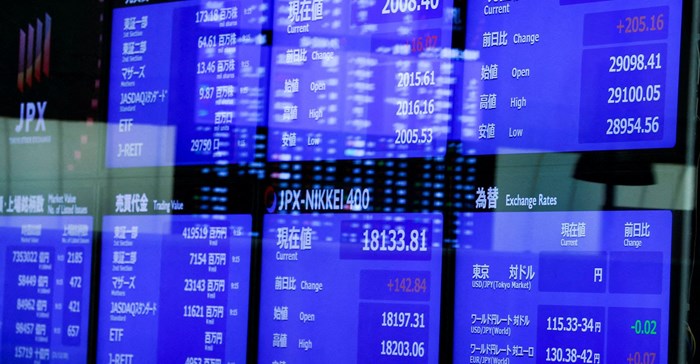Oil prices plunged more than $5 a barrel on Wednesday, 15 March, to their lowest in more than a year as unease over Credit Suisse spooked world markets and offset hopes of a Chinese oil demand recovery.

Source: Reuters.
Early signs of a return to calm and stability faded after Credit Suisse's largest investor said it could not provide the Swiss bank with more financial assistance, sending its shares and other European equities sliding.
"It doesn't matter what your risk asset is, at this point people are pulling the plug on across different instruments here," said Robert Yawger, director of energy futures at Mizuho in New York.
"Nobody wants to go home with a big position on anything today ... you have nowhere to hide really,"
Both benchmarks hit their lowest since December 2021 and have fallen for three straight days.
Brent crude fell $5.03, or 6.5%, to $71.98 a barrel by 12:34 p.m ET (1634 GMT).
US West Texas Intermediate crude (WTI) was down $4.76, or 6.6%, at $66.58, breaking through technical levels of $70 and $68 and extending the sell off.
Volatility in Brent and WTI was at its highest in more than a year and both entered technically oversold territory on Wednesday.
On Tuesday, both benchmarks had shed more than 4% to three-month lows, pressured by fears that the collapse of Silicon Valley Bank (SVB) last week and other US bank failures could spark a financial crisis that would weigh on fuel demand.
Hedge funds were liquidating due to rising interest rates and economic uncertainty, said Dennis Kissler, senior vice president of trading at BOK Financial, adding that heavy pressure on US stocks this morning was adding to the fund liquidation in crude.
The US dollar also strengthened against a basket of currencies, making it more expensive for holders of those currencies to purchase crude. [USD/]
Adding to the bearishness in the market, US crude stockpiles rose by 1.6 million barrels last week, government data showed, more than analysts' expectations in a poll for a 1.2 million-barrel rise.
Oil had rallied earlier in the session on figures showing that China's economic activity picked up in the first two months of 2023 after the end of strict Covid-19 containment measures.
Wednesday's monthly report from the International Energy Agency provided support by flagging an expected boost to oil demand from China, a day after OPEC increased its Chinese demand forecast for 2023.
"We definitely have seen the oil market separate themselves from oil inventories and we’re more focused on a larger meltdown of the global economy," said Phil Flynn, an analyst at Price Futures group.















































